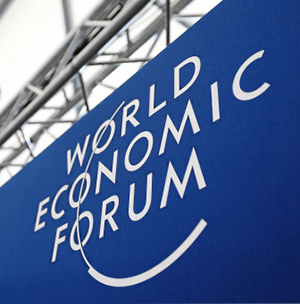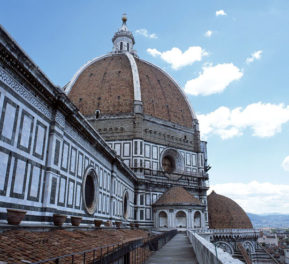
Photo: swiss-image.ch/Moritz Hager. © World Economic Forum
I’ve just returned from a week at the World Economic Forum in Davos, Switzerland. This is a meeting of the world’s corporate leaders and government officials, who gather to explore the economic and political prospects for the coming year.
Increasingly, the Forum has also invited cultural leaders to reflect on issues putting pressure on cultural institutions, and to consider the arts and their contributions to humanity. This year I was invited to conceive and moderate two panel discussions.
In the first, we discussed the fate of encyclopedic museums and the pressure put on them by nation-states calling for the repatriation of what they define as their cultural patrimony. While acknowledging that national governments have the right to restrict trade in their self-defined cultural heritage, we noted that in doing so they were denying their citizens—or subjects—access to cultural objects from different parts of the world, perpetuating dangerous stereotypes of foreign peoples and foreign cultures, and working against the promise of encyclopedic museums to promote the understanding of and respect for difference in the world. The panel included the directors of the British Museum, the Hermitage, the Metropolitan Museum of New York, and the International Council of Museums; it’s important to note that we didn’t limit our conversation to antiquities, but considered all manner of cultural objects.
In this video, Ismail Serageldin, director of the Bibliotheca Alexandrina (Egypt), and I discuss some of the themes covered in the panel, including the aspirations of the encyclopedic museum and issues surrounding repatriation.
The second panel looked at culture and its role in building community in our growing cities. We considered this issue in light of a recent United Nations Population Fund report, which reveals that the world is undergoing the largest wave of urban growth ever seen, most notable in Africa and Asia. By 2030, for the first time ever, more than half the world’s population—nearly five billion people—will be living in towns and cities. An artist from Chicago, an architect from Beijing, and the CEO of Habitat for Humanity joined me on the panel, and we discussed how vital a role the arts and creativity can play in building community and tackling basic issues of sustainability and livability.
After the session, sustainability advocate Sue Riddlestone and I sat down to talk about some of the themes that emerged.
Davos is an important opportunity for the arts to have a powerful presence on the world economic stage. And so after the first panel, we co-hosted a dinner with The Economist magazine and continued discussion of the panel’s main themes with a wide diversity of participants, including the Economist editor-in-chief, the presidents of Harvard and the University of Chicago, and former and current members of the Carter, Clinton, and Obama administrations.
Reflecting on Davos, I’m delighted that the Getty is helping to convene people around topics of importance and interest, and honored that we have earned respect for leadership in our field—even if it means traveling thousands of miles to spend a week in meetings when some of the world’s best skiing is just outside!




Comments on this post are now closed.